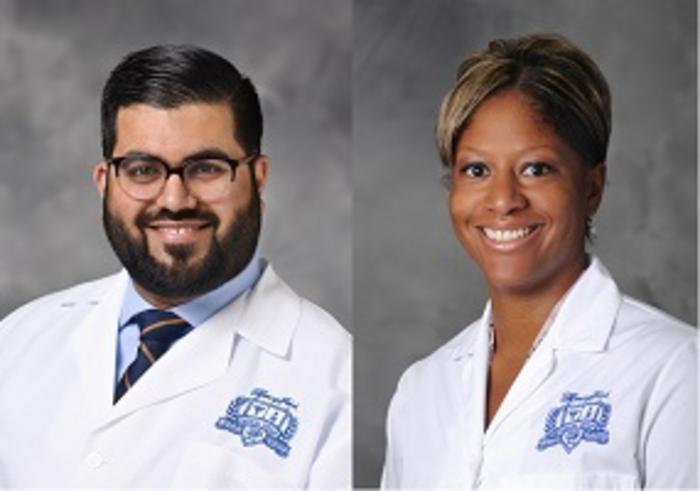DETROIT (March 14, 2024) – Interventional cardiologists at Henry Ford Hospital led a national multi-center clinical study, dubbed the “SAFE-MCS” study, that evaluated the safety of complex high-risk percutaneous coronary intervention (PCI) using mechanical circulatory support (MCS) and surveillance with the Early Bird® Bleed Monitoring System (EBBMS).

Credit: Henry Ford Health
DETROIT (March 14, 2024) – Interventional cardiologists at Henry Ford Hospital led a national multi-center clinical study, dubbed the “SAFE-MCS” study, that evaluated the safety of complex high-risk percutaneous coronary intervention (PCI) using mechanical circulatory support (MCS) and surveillance with the Early Bird® Bleed Monitoring System (EBBMS).
PCI is a non-surgical procedure used to treat the blockages in a coronary artery that opens narrowed or blocked sections of the artery, restoring blood flow to the heart.
“This study is the first of its kind to specifically evaluate bleeding complications in patients undergoing protected PCI,” said Babar Basir, D.O., Director of Acute Mechanical Circulatory Support at Henry Ford Health and co-principal investigator of the study. “These findings are clinically significant and endorse the use of EBBMS for high-risk PCI patients who are receiving MCS support.”
Dr. Basir presented the study’s outcomes at the annual Cardiovascular Research Technologies (CRT) meeting, showcasing a significant reduction in severe bleeding events among monitored patients compared to historical data.
The study enrolled 203 patients across multiple U.S. locations, demonstrating the effectiveness of EBBMS in detecting and preventing bleeding complications during protected PCI procedures. Protected PCI or protected stenting is a widely accepted procedure using MCS to temporarily assist the pumping function of the heart.
Brittany Fuller, M.D., an interventional cardiologist at Henry Ford Health, was the institutional principal investigator and the highest enroller in the study. “I’m proud of Henry Ford Health’s leading contributions to this study that has demonstrated the ability to markedly lower bleeding complications,” said Dr. Fuller.
The Early Bird® device is the only FDA-approved system for real-time bleed monitoring that represents a crucial advancement in reducing healthcare costs and improving patient outcomes during endovascular procedures. The significant reduction in bleeding complications in patients monitored by EBBMS in the study signals a positive step toward advancing bleed detection technology for better patient care.
“The SAFE-MCS results highlight the importance of monitoring patients for bleeding to prevent severe complications and improve patient outcomes,” said Herb Aronow, M.D., M.P.H., medical director of Heart & Vascular Services at Henry Ford Health.
To learn more or request an appointment with a Henry Ford Health Heart & Vascular specialist, visit: henryford.com/services/heart-and-vascular-institute.
To view the animated Early Bird® Bleed Monitoring System, click here.
###
MEDIA CONTACTS: [email protected]




